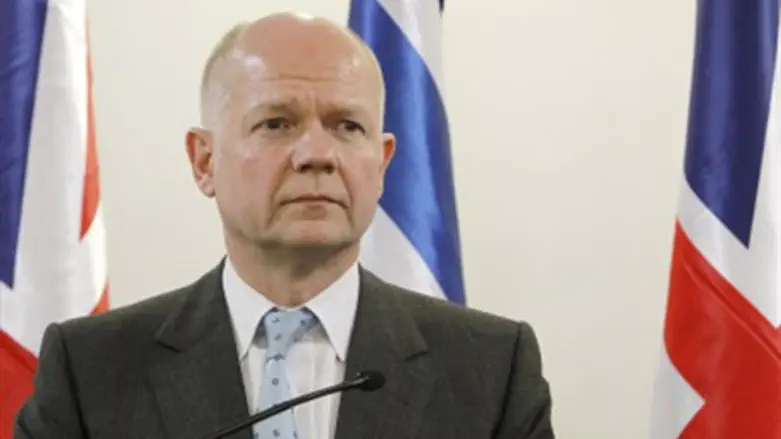
Both Britain and Turkey said on Monday that it would be possible to respond to the use of chemical weapons by the Syrian regime, even without the unanimous backing of the United Nations Security Council.
‘So, is it possible to act on chemical weapons, is it possible to respond to chemical weapons without complete unity on the UN Security Council?", asked rhetorically British Foreign Secretary William Hague. "I would argue, yes it is. Otherwise, of course, it might be impossible to respond to such outrages, such crimes and I don’t think that is an acceptable situation.
"It is possible to take action based on great humanitarian need and humanitarian distress, it’s possible to do that under many different scenarios,” Hague said in an interview for BBC radio. “I’ve pointed that out in Parliament over recent months before, but again, anything we propose to do on this, the strong response that we’ve talked about, whatever form that takes, will be subject to legal advice, must be in accordance with international law so I can be very clear about that."
Hague refused to “rule anything in or out” regarding the various methods of action than can be used. As for consulting Parliament, the Foreign Secretary was also vague:
“That will depend on the timing and nature of what we propose to do,” he explained. “We have a good record on consulting Parliament, having a vote in Parliament if we decide to take any military action and, of course, we’re conscious of the views of Parliament on these matters and the need to be consulted, so we’re very conscious of that but our decisions on that will depend on the timing and nature of what we propose to do.”
Turkey also said it would join any international coalition against Syria even if a wider consensus on action cannot be reached at the UN Security Council.
Foreign Minister Ahmet Davutoglu was quoted by the newspaper Milliyet as saying on Monday: “We always prioritize acting together with the international community, with United Nations decisions. If such a decision doesn’t emerge from the UN Security Council, other alternatives ... would come onto the agenda.”
“Currently 36-37 countries are discussing these alternatives. If a coalition is formed against Syria in this process, Turkey would take its place in this coalition,” he said.